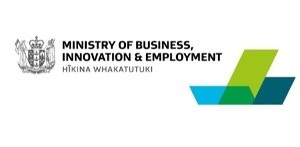CoFI change would give FMA power of onsite inspection without warning
The major change the government is considering making to the Financial Markets (Conduct of Institutions) Amendment Act 2022 (CoFI) is to give the Financial Markets Authority (FMA) the right to make onsite inspections without warning.
Friday, May 31st 2024, 6:45AM
by Jenny Ruth

The discussion document issued by the Ministry of Business, Innovation and Employment (MBIE) notes that the Reserve Bank already was recently granted such powers over deposit takers under the Deposit Takers Act 2023 and argues that both regulators should have similar powers.
“The power would not function as a 'search and seizure' power,” the discussion paper says. “All search powers must be proportionate to their objectives and all searches must be carried out by properly authorised and trained officers,” it says.
MBIE says that the FMA's predecessor, the Securities Commission, had such a power and it had been throught that the FMA Act included that power “but court decisions have subsequently clarified that this is not the case.”
Examples MBIE gives of when such powers could be used include when a firm registered on the Financial Services Provider Register is suspected of not having a real place of business in New Zealand.
“In some instances, firms have been known to 'rent a crowd' to give the impression of having real staff” after the FMA has obtained agreement to make an onsite visit.
“Onsite inspections powers are by nature intrusive. They should be designed consistent with NZ's legal and constitutional principles,” MBIE says.
“They typically require strong justification and careful design to ensure they balance rights and freedoms.”
MBIE says “the vast majority of onsite inspections” would still be carried out with notice.
One of the questions MBIE is asking is whether such onsite inspections without notice power would apply only to licenced firms or to all the firms regulated by the FMA.
It notes that if the power applied only to the former, that would not cover firms suspected of not having a real place of business in NZ.
Another proposed change would give the FMA the same power that RBNZ already has to require an independent expert to examine firms it regulates.
Again, MBIE is asking whether this power should be limited to licenced firms or whether it should cover all the firms it regulates.
MBIE is recommending that most of the CoFI requirements to treat consumers fairly would be retained with only a few changes to simplify requirements and to remove duplication.
“The fair conduct principle was designed to be a broad and relatively high standard of conduct that applies in a wide range of circumstances,” it says.
“The concept of what is “fair' will also likely evolve over time as products and services, industry practices and societal norms change.”
The proposed changes include making it easier for the RBNZ and the FMA to work together and co-ordinate under the “twin peaks” model of financial markets regulation, including expressly giving each regulator the right to rely on work produced by the other.
The FMA would also be given the power to approve a change of ownership of a regulated entity, rather than only being able to act after such a change if consumers were being disadvantaged. RBNZ already has that power.
CoFI is set to kick in from March 31 next year and MBIE says, given the need for amendments to be drafted, introduced into parliament and then scrutinised by a select committee, it is unlikely the changes would take effect before 2026 “at the earliest.”
That means the current CoFI requirements take effect as planned. Submissions on MBIE's proposals are due by June 19.
| « Simplicity Living completes new homes, thematic fund ramps exposure | Out Now: FAP report card » |
Special Offers
Comments from our readers
No comments yet
Sign In to add your comment
| Printable version | Email to a friend |



